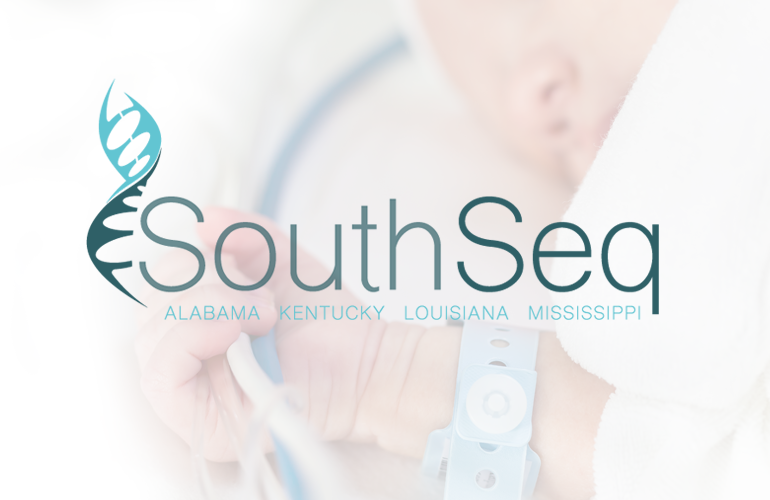 The last thing the parent of a newborn baby expects to hear is that there is something wrong with their child that has no answer. Unfortunately, for the parents of 1 in 33 newborns, this is the harrowing reality. Many critically ill newborns spend months in the neonatal intensive care unit (NICU) having a panel of tests run on them. In many cases, a diagnosis still escapes scientists and medical professionals.
The last thing the parent of a newborn baby expects to hear is that there is something wrong with their child that has no answer. Unfortunately, for the parents of 1 in 33 newborns, this is the harrowing reality. Many critically ill newborns spend months in the neonatal intensive care unit (NICU) having a panel of tests run on them. In many cases, a diagnosis still escapes scientists and medical professionals.
For these sick babies, early diagnosis can afford them the benefit of disease management and treatment that could potentially avoid the worst effects of their disease or disorder. Early diagnosis can also shorten the length that infants stay in the NICU and the number of tests to which they are subjected.
The last thing the parent of a newborn baby expects to hear is that there is something wrong with their child that has no answer. Unfortunately, for the parents of 1 in 33 newborns, this is the harrowing reality. Many critically ill newborns spend months in the neonatal intensive care unit (NICU) having a panel of tests run on them. In many cases, a diagnosis still escapes scientists and medical professionals.
For these sick babies, early diagnosis can afford them the benefit of disease management and treatment that could potentially avoid the worst effects of their disease or disorder. Early diagnosis can also shorten the length that infants stay in the NICU and the number of tests to which they are subjected.
Many rare infant and childhood diseases are genetic in nature, meaning they are caused by abnormalities in a child’s DNA. Researchers at the HudsonAlpha Institute for Biotechnology are analyzing the DNA of more than 600 sick babies to hopefully offer earlier answers to the babies and their families.
SouthSeq aims to provide diagnoses for sick newborns from underserved communities
SouthSeq is a National Institutes of Health (NIH) funded clinical research study led by HudsonAlpha Faculty Investigator Greg Cooper, PhD, and members of his lab. The study aims to use genome sequencing to identify genetic variants that may contribute to the conditions of sick newborns, with the ultimate goal of providing diagnoses for these families. Five clinical sites collaborate with HudsonAlpha on this study including the University of Alabama at Birmingham (UAB) School of Medicine, University of Mississippi Medical Center, University of Louisville, Woman’s Hospital in Baton Rouge, and Children’s Hospital of New Orleans.
 Every baby born at a hospital in the United States receives newborn screening that checks their heart function, hearing, and a panel of metabolic markers that could potentially indicate an underlying health condition. If a baby receives a positive test result, follow-up testing is performed to confirm or dismiss the result. Genetic testing of one or two genes involved in the suspected disease is often included in the confirmatory testing.
Every baby born at a hospital in the United States receives newborn screening that checks their heart function, hearing, and a panel of metabolic markers that could potentially indicate an underlying health condition. If a baby receives a positive test result, follow-up testing is performed to confirm or dismiss the result. Genetic testing of one or two genes involved in the suspected disease is often included in the confirmatory testing.
For babies with signs of potential disease that cannot be identified with standard genetic testing methods, whole genome sequencing is emerging as a valuable tool for disease diagnosis. Whole genome sequencing examines a person’s entire DNA code, whereas genetic testing looks at a specific set of genes that are known to be involved in a certain disease.
However, most genome sequencing studies have historically included primarily white and European-descent patients. Minorities are vastly underrepresented which makes generalizing genetic findings for these populations difficult. The goal of SouthSeq is to provide free genome sequencing to a large and diverse set of families with babies who have symptoms suggestive of a genetic disorder.
At the clinical sites, a small blood sample is taken from the babies and, if possible, their parents. The sample is sent to HudsonAlpha where DNA is extracted from the blood cells and sequenced. By sequencing and analyzing the entire genome, the research team, led by HudsonAlpha senior scientists Kevin Bowling, PhD, and Michelle Thompson, PhD, can identify gene variants that may contribute to the sick infant’s conditions.
Results from initial cohort of SouthSeq babies is promising
SouthSeq targeted enrollment of a diverse population of babies representing racial and ethnic minorities as well as those from rural, medically underserved areas. The study enrolled 640 babies across the five clinical sites. Results from a completed analysis of the first 367 babies enrolled was recently published in the journal Genetics in Medicine, the official journal of the American College of Medical Genetics and Genomics (ACMG).
 “Through the help of our collaborating clinical sites, we were able to sequence the genomes of the largest-to-date cohort of critically ill newborns,” says Cooper, who serves as the Principal Investigator for the study. “The initial group included many African American and rural patients to whom genomic and genetic testing have not historically been accessible which makes the study that much more impactful.”
“Through the help of our collaborating clinical sites, we were able to sequence the genomes of the largest-to-date cohort of critically ill newborns,” says Cooper, who serves as the Principal Investigator for the study. “The initial group included many African American and rural patients to whom genomic and genetic testing have not historically been accessible which makes the study that much more impactful.”
Of the 367 babies that received genome sequencing through SouthSeq, 30 percent received a genetic diagnosis. An additional 14 percent received results of uncertain significance, meaning a genetic variant was identified but there is not enough current knowledge to definitively link it to the disease.
The research team also found that newborns exhibiting abnormal craniofacial, ophthalmologic, auditory and/or skin and hair features were more likely to receive a genetic diagnosis using genome sequencing. By identifying these features in a patient, physicians could determine if a patient is a good candidate for genome sequencing.
“Our results demonstrate the utility of genome sequencing to provide early detection of disease causing genetic changes, particularly for newborns that exhibit certain symptoms and phenotypic features,” says Thompson. “Fifty-three percent of the disease-causing variants that we identified were not detected by standard clinical genetic testing.”
Matthew Jones and April Woidt-Jones were one of the families that received a diagnosis for their baby through SouthSeq. Their son David spent 83 days in the NICU while doctors and scientists were looking for answers for his hearing loss and heart condition. After David received heart surgery for two holes and a leaky valve, the Jones family were offered the chance to participate in SouthSeq. Through the study, they learned that David had a CHD7 genetic mutation which is associated with CHARGE syndrome. Learn more about David’s story here.
This is just one of many stories that demonstrate how valuable whole genome sequencing can be for critically ill newborns showing signs of potential genetic disease. The early results from the SouthSeq study reinforces the notion that whole genome sequencing could become an important first line tool in diagnosing rare and unknown newborn and early childhood diseases.

